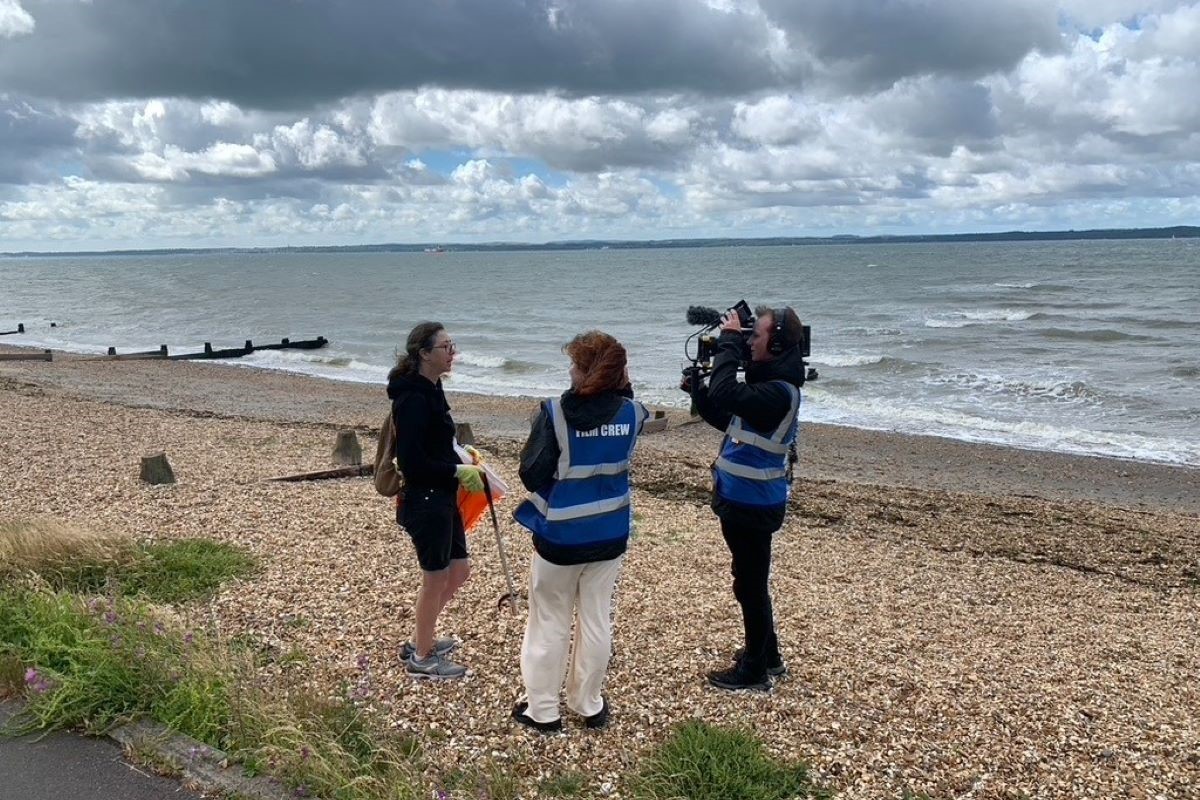Rishi announces the General Election will be on the 4th July 2024

Prime Minister Rishi Sunak announced the General Election will be on the 4th July 2024 in an outside broadcast in front of Number 10 in the rain. So with the upcoming election, what does this mean for Further Education, Work Based Learning, Apprenticeships, Skills, Employability and post 16 qualifications?
Here are the sector reactions to the 4th July General Election announcement
Responding to the calling of a General Election for July 4, Pepe Di’Iasio, General Secretary of the Association of School and College Leaders, said:
“Whoever forms the next government will have the opportunity to invest in education and set a course towards a brighter future. All political parties should make it a priority in their manifesto to commit to providing schools and colleges with the funding and staff they require to deliver a great education for all children and young people.
“Education is vital for the life chances of the next generation, as well as for ensuring the prosperity of our country by providing the workforce with the skills and knowledge they need to thrive. For too long education has been seen as a drain on current resources, rather than an investment in future success. Over the next few months, all parties and candidates will have the chance to right this wrong and we urge them to grasp that opportunity.”
“We look forward to working with all parties in the best interests of children and young people.”
TUC General Secretary Paul Nowak said:
“This is a vital election for working families.
“After 14 long years of stagnant living standards, run-down public services and soaring poverty,the country desperately needs change – and a plan to repair and rebuild Britain.
“The New Deal for Working People will make work pay and improve rights and protections for millions.And the Green Prosperity Plan will deliver much-needed investment and good jobs across the UK.
“We can’t carry on with the same broken, unequal way of doing things. We need a country where everybody and every community can thrive.”
Responding to the announcement of a General Election, REC Chief Executive Neil Carberry said:
“Economic growth and competitiveness need to be at the heart of this election campaign. A vibrant economy is the only way to higher wages, better public services, and lower taxes. We have highlighted paths to all of that in our manifesto document by using the insights of recruiters who have a front-line view to how we get there.
“Any plan for competitiveness is fundamentally about the talent and application of our British workforce. In the next few weeks, politicians must show that they really get today’s labour market. From helping people build skills to investment in transport and childcare, there is a lot to do. But it starts with understanding that workers and businesses need a more flexible approach than in the past, and that our regulation, skills and tax systems need to keep up.
“The UK has a tight labour supply – we need to make the most of it. The cost to the UK economy in lost wages and profits could be up to £39 billion every year – the equivalent of two whole Elizabeth Lines – if we do get it wrong. “
Faiza Khan MBE, Exec Director, Corporate Affairs and Foundation, City & Guilds:
“City & Guilds continue to call for a fresh approach to skills that takes account of both the national framework and the reality for learners locally. We know that skills are a key driver for growth and productivity and as such need to be seen as an investment for the future.
“We want to see learners put ahead of political cycles and for a truly joined up approach to be created for the country. Any such effort would need to pull on all the levers of government, from Whitehall to the regions and then across all the nations to ensure we are coordinated in our offer to learners and to industry.
“Alongside others involved in the Future Skills Coalition, City & Guilds are calling for a national strategy for local inclusive growth, a commitment to lifelong learning and fair accessible funding to ensure these can happen. We hope these will be the hallmarks of the next phase for skills strategy.
We face major challenges, such as climate change, new technology, immigration and changing trading relationships, as well as the ongoing impacts on health and wellbeing in a post COVID world, all of which make it even more vital we allow productivity to thrive.
“We know from Labour market research that 9 in 10 people will need to upskill by 2030 to meet these national and global challenges. This gap is already impacting business, for example the Open University British Chambers of Commerce report has found that more than three quarters (78%) of UK businesses are seeing reduced output, profitability, or growth as a result of skills shortages.
“Overcoming this means ensuring people can access education and training throughout their lives, it means reducing bureaucracy and red tape to clear the pathways that lead to this and their potential for success. City & Guilds has stood by learners and industry since 1878 and will continue to provide this important support to the next administration as it looks to set the next stage for skills.”
Stephen Evans, CEO of Learning and Work Institute said:
“Whoever wins the election needs to put learning, skills and employment front and centre of their plans. To grow the economy and widen opportunity, the next government needs to invest in skills (reversing the £1 billion real terms cut in England since 2010), increase employer investment in training (which has fallen 26% per employee since 2005), and widen employment support (given only 1 in 10 out of work disabled people get help to find work each year). Growing our workforce, investing in skills, widening opportunity. All of these things can make the UK a fairer and more prosperous place.”
Scott Parkin FIEP, Group CEO, IEP said
“This is the Employability Election, the people who need the most help need the best help and the IEP is here to help all the parties develop the best strategy for getting Britain back to work.”
John McNamara Interim CEO of the Federation of Awarding Bodies (FAB) said:
“As we enter another general electioneering season, one thing at least is certain! Vocational Skills and Education will feature strongly in all the party manifestos and future policy commitments. All FAB members support the principle of prioritising investment in skills and look forward to working closely with whichever party forms the next government when they are in power.
“Our member’s commitment is to provide high value vocational qualifications for UK learners throughout their careers. With 85% of the 2035 workforce currently in employment, it is clearly vital to help people upskill and re-skill to drive up UK economic productivity and equally importantly, to improve life chances and social mobility.
“In the meantime, awarding and assessment organisations will continue to work hard and provide timely results to our learners during this busy season”.
Dr Patrick Roach, General Secretary of NASUWT – The Teachers’ Union, said:
“We welcome the Prime Minister finally moving to announce a General Election.
“July 4th presents a major opportunity for the country to elect a new government that will deliver a new deal for teachers and for children’s education. It will be a defining moment for the country and for the next generation.
“It is abundantly clear that the current government has run out of road and that the country is crying out for a new administration prepared to tackle the crises in our schools and other public services. The last 14 years have failed to deliver the investment in our schools and colleges that children deserve, whilst we have seen teachers quitting the profession in record numbers.
“Our children’s lives and futures are being damaged by a lack of investment in our schools, colleges and wider support services for children and families.
“More teachers and headteachers are leaving the profession prematurely, whilst targets to train the next generation of teachers have been missed for more than a decade. School buildings are crumbling and increasing numbers of pupils are unable to access the specialist services and support they need.
“This election matters, not just for education in England, but across the UK because in Northern Ireland, Scotland and Wales high quality education is dependent on a fair funding settlement from Westminster.
“The message from our members is loud and clear: teachers are angry, frustrated and believe the change we need can only come from a new government that is committed to delivering a New Deal for Teachers.
“NASUWT will be campaigning to ensure that the next government will commit to ending the teacher recruitment and retention crisis and ensuring that every child is taught by qualified teachers.
“If politicians want the votes of the teaching profession in this election they have six weeks to prove they are ready to deliver for teachers, pupils, parents and the future of our education system.”
Ben Rowland, AELP Chief Executive Officer said:
“July’s General Election is a chance to shape the future of skills provision. The next government has a golden opportunity to reverse flatlining productivity and tepid economic growth by investing in skills. Allowing learners to develop the skills employers need must be a national priority.
“That needs our future parliamentarians to understand much more about the role training providers – especially independent training providers (ITPs) – play in delivering skills, and to ensure they have the resources they need to deliver the wide range of high-quality programmes employers demand.
“To do this we need the next government to commit to:
- A national strategy for a national skills system that supports economic growth in every region of the country.
- An apprenticeship system that delivers for businesses of all sizes by supporting learners of all ages and at all levels.
- More vocational and technical learning opportunities for young people to help home grown talent to fill job vacancies in key sectors.
- A lifelong learning guarantee to enable people to gain new skills throughout their working life.
- A root and branch review of how English and maths is delivered and assessed throughout the education system.
- A skills system that prioritises learners and employers, not the institution they study at.
“AELP will be promoting this message throughout the next six weeks and beyond, and calls on all its members to get in contact with local election candidates to invite them in to see first-hand the brilliant work providers do on a daily basis.”











Responses